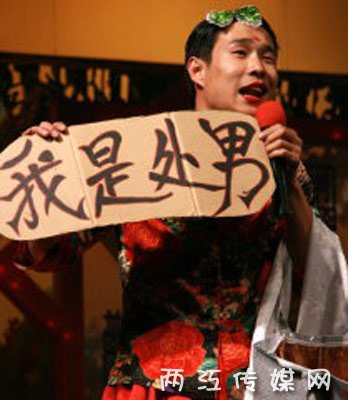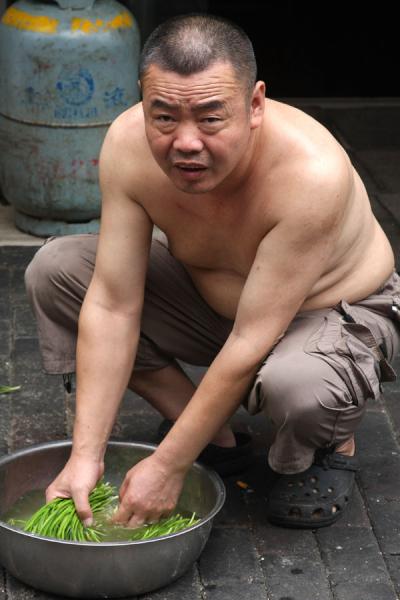- Joined
- Aug 29, 2008
- Messages
- 27,381
- Points
- 113
Jul 10, 2011
In a sea of foreigners
With so many foreigners working and living here, I sometimes feel like a stranger in my own land
By Sumiko Tan
The woman in front of me was dancing away. She had slipped off her shoes and was chopping the air with her arms and gyrating with great feeling.
Occasionally, she'd sidle up to the man next to her and they'd kiss or she'd take a sip from his plastic cup of beer.
I was at the Kylie Minogue concert and one thought struck me: 'These expats sure know how to hang loose and have fun.'
It's a common sight at concerts. Save for pockets of more demonstrative Singaporeans, it'll be the foreigners who look as if they're really having a good time.
They'll be the ones dancing and clapping and whooping it up, and with such self-assurance and self-confidence too.
At the Kylie gig, I was seated in a row of about eight people. They must have been Singaporeans because we all remained seated throughout. The most energetic thing we did was to wave the light stick, and even then feebly and self-consciously.
Surrounding us, though, were hundreds of foreigners - I am guessing Australians, Britons and Americans - who were partying away.
For a moment, I felt like a stranger in my own country.
It was the same feeling I got last Saturday night when I went to Geylang.
I had a craving for claypot rice. Because the area was crowded, we had to park at a lorong far away from the coffee shop. Making my way there, I was struck by the sheer number of Chinese nationals milling around me.
I'd always known that Geylang has become the new Chinatown but I hadn't realised by just how much.
I passed a restaurant and did a doubletake because sitting at the 10 or so tables inside were just men. There was no woman in sight. Their faces were ruddy - from the sun or maybe alcohol - and they looked less like tourists than foreign workers here.
Everywhere I turned I heard Chinese being spoken with accents that sounded strange to me.
I strained to hear a familiar Singaporean voice and when I finally overheard snatches of Hokkien, I smiled to myself - a Singaporean at last. (Or was he from Taiwan?)
This feeling of dislocation surfaced again when I was shopping in Orchard Road.
At a shoe shop, an Indonesian woman on my right was studiously trying on one pair after another. On my left were two beautiful female tourists from China. In front of me were Caucasian women checking out the accessories.
It's the same at all my weekend haunts, whether it's Ngee Ann City, Great World City or Little India or a suburban mall.
I just feel outnumbered by foreigners.
Singapore has changed.
Growing up, one had a vague idea of how there were foreigners in our midst, but we led pretty much separate lives.
You'd see Caucasians in Holland Village, Japanese at Liang Court, Indonesian Chinese in Orchard Road, but that was about it.
If these foreigners lived here, their kids went to schools such as the Singapore American School or United World College. They were in a different world.
My father had a few foreign friends he met in the course of his work and they'd visit us, but by and large, my contact with non-Singaporeans was limited.
Today, you'd be hard put to not meet a foreigner once you step out of the house. They are everywhere.
It's no surprise, really, if you look at the statistics.
Last year, Singapore's population stood at 5.076 million. Citizens made up 3.23 million, permanent residents 541,000 and non-residents (foreigners living, studying and working here) 1.305 million.
In 1990, the population was 3.04 million, comprising 2.62 million citizens, 112,000 PRs and 311,000 non-residents.
That's a giant leap in foreigners in just two decades. And we're not even counting the millions of tourists each year.
I have mixed feelings about Singapore's changing demographics.
On the plus side, their presence makes me appreciate Singapore more. Singapore must be doing something right to be such an attractive draw for so many people from all corners of the world.
Foreigners have also helped the economy grow, and their presence gives Singapore a sophisticated, cosmopolitan buzz.
I like, too, how they bring their culture and food with them, adding variety to Singapore life, and I like how I've widened my world view through meeting people from different countries.
The downside is, I feel squeezed out.
I also feel aggrieved when they bring with them habits I'm not familiar with (you might have seen the photos of them hanging laundry in HDB playgrounds, for example).
I don't like hearing about how they are taking away jobs from Singaporeans, or pushing down wages, or buying up the nice homes in the good districts, or taking up places in good schools.
Mostly, I resent it when they disparage Singaporeans, our institutions and our norms.
It's one thing for a Singaporean to criticise how the system works, but another when a foreigner does it, I feel. And if the Singaporean way of life offends you so much, why are you still here?
Still, all considered, the good outweighs the bad, to me at least.
Last Sunday after yoga, I was heading to a carpark when I was stopped by a man clutching some delivery forms.
He spoke in a thick Chinese accent and I gathered that he was from a catering company - his van was parked there - and had been instructed to contact a woman when he arrived to set up food for a wedding reception.
But no-one was answering his calls and he didn't know what to do. He was clearly from China and couldn't speak English.
He passed me some telephone numbers and I got in touch with the woman who said she'd go to the carpark to meet him.
He was grateful for my help and I was glad to have helped.
We smiled and waved goodbye.
I suppose when you allow yourself to keep an open mind, nationalities count for little in relationships. We're all just human beings and that, really, should be all that matters.
[email protected]
In a sea of foreigners
With so many foreigners working and living here, I sometimes feel like a stranger in my own land
By Sumiko Tan
The woman in front of me was dancing away. She had slipped off her shoes and was chopping the air with her arms and gyrating with great feeling.
Occasionally, she'd sidle up to the man next to her and they'd kiss or she'd take a sip from his plastic cup of beer.
I was at the Kylie Minogue concert and one thought struck me: 'These expats sure know how to hang loose and have fun.'
It's a common sight at concerts. Save for pockets of more demonstrative Singaporeans, it'll be the foreigners who look as if they're really having a good time.
They'll be the ones dancing and clapping and whooping it up, and with such self-assurance and self-confidence too.
At the Kylie gig, I was seated in a row of about eight people. They must have been Singaporeans because we all remained seated throughout. The most energetic thing we did was to wave the light stick, and even then feebly and self-consciously.
Surrounding us, though, were hundreds of foreigners - I am guessing Australians, Britons and Americans - who were partying away.
For a moment, I felt like a stranger in my own country.
It was the same feeling I got last Saturday night when I went to Geylang.
I had a craving for claypot rice. Because the area was crowded, we had to park at a lorong far away from the coffee shop. Making my way there, I was struck by the sheer number of Chinese nationals milling around me.
I'd always known that Geylang has become the new Chinatown but I hadn't realised by just how much.
I passed a restaurant and did a doubletake because sitting at the 10 or so tables inside were just men. There was no woman in sight. Their faces were ruddy - from the sun or maybe alcohol - and they looked less like tourists than foreign workers here.
Everywhere I turned I heard Chinese being spoken with accents that sounded strange to me.
I strained to hear a familiar Singaporean voice and when I finally overheard snatches of Hokkien, I smiled to myself - a Singaporean at last. (Or was he from Taiwan?)
This feeling of dislocation surfaced again when I was shopping in Orchard Road.
At a shoe shop, an Indonesian woman on my right was studiously trying on one pair after another. On my left were two beautiful female tourists from China. In front of me were Caucasian women checking out the accessories.
It's the same at all my weekend haunts, whether it's Ngee Ann City, Great World City or Little India or a suburban mall.
I just feel outnumbered by foreigners.
Singapore has changed.
Growing up, one had a vague idea of how there were foreigners in our midst, but we led pretty much separate lives.
You'd see Caucasians in Holland Village, Japanese at Liang Court, Indonesian Chinese in Orchard Road, but that was about it.
If these foreigners lived here, their kids went to schools such as the Singapore American School or United World College. They were in a different world.
My father had a few foreign friends he met in the course of his work and they'd visit us, but by and large, my contact with non-Singaporeans was limited.
Today, you'd be hard put to not meet a foreigner once you step out of the house. They are everywhere.
It's no surprise, really, if you look at the statistics.
Last year, Singapore's population stood at 5.076 million. Citizens made up 3.23 million, permanent residents 541,000 and non-residents (foreigners living, studying and working here) 1.305 million.
In 1990, the population was 3.04 million, comprising 2.62 million citizens, 112,000 PRs and 311,000 non-residents.
That's a giant leap in foreigners in just two decades. And we're not even counting the millions of tourists each year.
I have mixed feelings about Singapore's changing demographics.
On the plus side, their presence makes me appreciate Singapore more. Singapore must be doing something right to be such an attractive draw for so many people from all corners of the world.
Foreigners have also helped the economy grow, and their presence gives Singapore a sophisticated, cosmopolitan buzz.
I like, too, how they bring their culture and food with them, adding variety to Singapore life, and I like how I've widened my world view through meeting people from different countries.
The downside is, I feel squeezed out.
I also feel aggrieved when they bring with them habits I'm not familiar with (you might have seen the photos of them hanging laundry in HDB playgrounds, for example).
I don't like hearing about how they are taking away jobs from Singaporeans, or pushing down wages, or buying up the nice homes in the good districts, or taking up places in good schools.
Mostly, I resent it when they disparage Singaporeans, our institutions and our norms.
It's one thing for a Singaporean to criticise how the system works, but another when a foreigner does it, I feel. And if the Singaporean way of life offends you so much, why are you still here?
Still, all considered, the good outweighs the bad, to me at least.
Last Sunday after yoga, I was heading to a carpark when I was stopped by a man clutching some delivery forms.
He spoke in a thick Chinese accent and I gathered that he was from a catering company - his van was parked there - and had been instructed to contact a woman when he arrived to set up food for a wedding reception.
But no-one was answering his calls and he didn't know what to do. He was clearly from China and couldn't speak English.
He passed me some telephone numbers and I got in touch with the woman who said she'd go to the carpark to meet him.
He was grateful for my help and I was glad to have helped.
We smiled and waved goodbye.
I suppose when you allow yourself to keep an open mind, nationalities count for little in relationships. We're all just human beings and that, really, should be all that matters.
[email protected]






